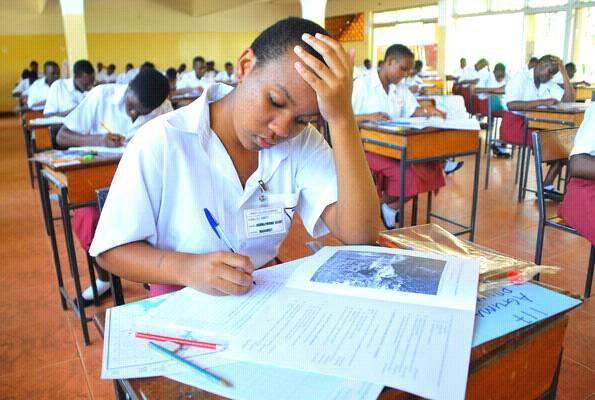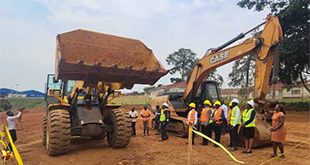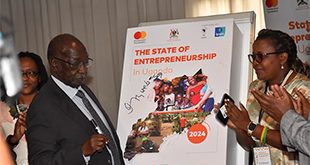
Kampala, Uganda | THE INDEPENDENT | The Uganda National Examinations Board (UNEB) has begun testing sample questions for the assessment under the recently revised lower secondary school curriculum.
In 2020, the National Curriculum Development Centre (NCDC) undertook a comprehensive revision of the lower secondary curriculum, emphasizing a shift towards competency-based and learner-centred education. Central to this development was the changes in assessment.
Consequently, these transformative changes necessitated a re-evaluation of the examination procedures and numerous schools across the country have now been chosen to participate in this targeted research initiative.
Christine Atim, a teacher from Wakiso School for the Deaf shared insights with our reporter, recounting an event where a contingent of officials from the examinations body visited their institution. During this visit, a collection of question papers was distributed among a group of students, selected at random.
“I wasn’t entirely clear about their purpose, but the individuals were representatives of UNEB, and they distributed various question papers to a diverse set of students,” Atim said during an interview yesterday.
UNEB spokesperson Jennifer Kalule Musamba confirmed that the board is undertaking a trial for the examinations. Musamba added that since the curriculum’s implementation, the board has been diligently collaborating with a panel of both internal and external examination experts, whose collective efforts have been directed towards formulating an assessment framework that resonates with the revised curriculum.
More information obtained from the examination body indicates that the ongoingprocess involves a comprehensive review, encompassing various aspects. One of the focal points pertains to the nature and structure paper. For example, in the old curriculum, papers were categorized into either two or three sections.
There is a contemplation underway to ascertain the number of papers per subject in the current context and figure out the structures of the questions to decide whether to include structured questions, objectives, and application-based questions among others.
Similarly, Musamba added that subject experts are actively engaged in scrutinizing the temporal requirements for the assessment process. This encompasses an array of considerations, including the duration needed for the completion of a single examination.
The spokesperson explained that the ongoing trials are essentially preliminary versions dubbed mock trials designed to assist subject experts in formulating improved assessments. She mentioned that following the current activity, they anticipate receiving feedback from learners, teachers, subject experts, and NCDC.
Following this stage, they will work on creating improved assessments, which will undergo another round of testing in schools at the start of the upcoming year. Only after these steps will the final versions be introduced.
According to the plan, once UNEB finalizes the envisioned structure of the new exams, sample materials will be dispersed to schools nationwide. These samples will serve as tools for teachers to ready their students, who will be pioneer candidates in senior by that point.
Teachers have expressed concerns about the Uganda National Examinations Board (UNEB) for its delay in communicating the details of the assessment structures and the anticipated quantity of exam papers for each subject to schools.
On the other hand, some education experts have downplayed the teachers’ concerns, suggesting that their focus on aligning teaching methods with the anticipated exam formats has historically posed significant challenges, as seen during the transition from the previous curriculum.
In the newly revised curriculum, the influence of final examinations has been diminished. In the past, a student’s performance in the final exam held complete sway over their overall achievement in a specific educational phase.
Now, the final scores will be comprised of 80 per cent from the final examinations and the remaining 20 per cent will be derived from continuous assessments administered to students at the conclusion of each topic within a particular subject.
*****
URN
 The Independent Uganda: You get the Truth we Pay the Price
The Independent Uganda: You get the Truth we Pay the Price



Very good but implementing the curriculum mostly on learned centered needs seriously finding
4sure we need sample questions in order 2 be wel updated on kind of such setting
Sample questions help the students to understand more about this system
Nice
Ok
Uneb should post sample questions that can be downloaded for students’ revision
Exactly that is what we are laking
its a good idea
Let uneb help students with sample questions on how the exams will be set
Uneb should give students every good idea to students and teachers because some don’t know what they are teaching and learning
as a student pioneering this curriculum i believe it is best UNEB & NCDC should republish sample papers for the end of cycle exam so as to prepare students for what is to come
Please post some of the sample questions to be set
Its really indeed they should set up students especially those ones who are going to sit exams as the first curriculum attendants through posting sample questions they are to be set for them so as they attain
We need sample questions
Can I please get some sample questions for the new curriculum
Nice and updated news
But we really need some sample papers in order to be well prepared for the coming final exams for us the S.4 pioneers
It doesn’t need cram work
Thanks for the good work done
Let us be sampled before the exams
you are correct
Indeed we need some samples ba dha tu bi on the safe side
Definitely I agree with the sharing of the sample qns coz we in form 3 that’s where we shall get the knowledge from on how the qns will be like en prepair for them
We students need sample questions because we don’t know how the questions will look like
Yaa That’s true coz this papers will guide us on what to do towards the final paper.